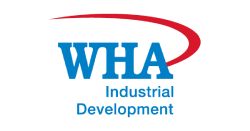Articles
CEO Talk - A Matter of Fine-tuning
30/04/2013A Matter of Fine-tuning
Within the last twenty-five years, Thailand has experienced tremendous changes that have transformed it into a more sophisticated economy and a developed country. Through the implementation, in particular, of sound policies by the Board of Investment (BOI), Thailand has been able to attract an impressive selection of industries in various sectors such as automotive, petrochemical, electronics, and so on. As evidence of these efforts, Thailand is now the world’s 10th largest auto producer, with 2.4 million vehicles in 2012, and a major car exporter to other countries.
Simultaneously, we have seen great progress in terms of infrastructure with the construction of better roads and highways, the Suvarnabhumi airport, the Laem Chabang deep sea port, advanced logistic facilities and better supply chain systems.
The government’s recent decisions to launch a massive Baht 2.0 trillion investment program for new transportation infrastructure, and to reduce the Corporate Income Tax (CIT) from 30% to 23% first, then to 20%, represent further good news for investors. As a result, Thailand is now considered as a competitive, “reasonable-cost” and attractive economy for investors from all over the world.
In this context, it is understandable that the government and the BOI intend to amend their investment policies to help Thailand attain a higher development level, by focusing on more value-added, knowledge-based industries and promoting a greener environment.
To do so, however, I would advocate a cautious approach, based on gradual rather than radical changes, “evolution” rather than “revolution”, in order not to discourage potential investors with what they might perceive as counterproductive regulations.
Let’s take a look, for example, at the BOI’s plan to abolish zoning and replace it with clusters in sectors like aerospace, science & technology, entertainment, fashion or food processing.
In general, at Hemaraj we believe that industrial investors are best-placed to know where they should locate, as they make their choice based on objective criteria, typically the long-term cost of ownership. As attractive as they can be, tax incentives are not the only factor considered prior to an investment. Depending on their respective activities, investors may need access to an international airport, to a deep-sea port, to skilled labor resources or to a more massive workforce. In fact, over the past decades, zoning policies have already led to the creation of clusters in the automotive, electronics and petrochemical sectors.
Not surprisingly, these clusters are naturally located in the Eastern Seaboard or north of Bangkok, simply because these industries need access to the sea, to international freight forwarding, to good logistic and supply chain systems and to an important workforce. Furthermore, with the recent implementation of the minimum wage in all provinces, zoning can still be seen as a good tool to encourage industrial decentralization.
This is to say that what is needed here is a soft approach and a “fine-tuning” policythat will “reinforce” rather than “replace” the previous scheme. Basically, what the BOI did within the last 25 years has worked remarkably well. Thailand has become a very attractive place for foreign investment, enabling the Kingdom to build a significant industrial base and become an international player in a number of industries. The challenge for Thai authorities today is to find the right equilibrium to maintain what is working well while favoring further developments.
David Nardone
President & CEO
Hemaraj Land And Development Plc.

